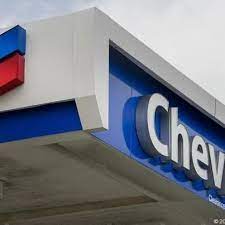On Tuesday, Michael Wirth, the chief executive of Chevron, responded to White House officials’ criticism of the oil industry over energy costs by asserting that lowering fuel prices will necessitate “a shift in attitude” on the part of the federal government.
The letter is the most recent in a string of tense confrontations between the American oil sector and President Joe Biden regarding who is to blame for the high cost of gasoline, which has contributed to inflation reaching 40-year highs.
The White House requested a meeting this week with the CEOs of seven refineries and oil corporations, including Chevron, to examine methods to boost production capacity and lower energy costs. Wirth declared he would go.
In a letter to Biden, Wirth said that “Your administration has generally sought to criticize, and at times condemn our business.” “These acts do not help us meet the issues we are facing,”
A few hours later, Biden told Washington-area media that the executive was being overly sensitive.
When questioned about Wirth’s letter, the president responded, “I didn’t know they’d get their feelings hurt that easy.”
On June 10, Biden criticized the oil industry for reporting record profits and called on it to expand oil output and capacity for refining in order to lower gasoline costs. In remarks made in Los Angeles earlier this month, he also charged Exxon Mobil Corp with making “more money than God” and neglecting to drill enough.
Inflation is a primary concern for Americans ahead of the November elections, in which control of Congress is at stake, and Biden is under fire over record gasoline prices.
The authority to lease and permit on federal lands, as well as the ability to permit and build essential infrastructure, as well as regulation that takes costs and benefits into account, according to Wirth, are all policy issues that the oil sector requires clarity and consistency on.
Wirth stated that an open debate was necessary. “One that acknowledges that our industry is crucial to both the American economy and our national security.”
Fuel shortages and high prices from major consumers like the United States and Brazil to smaller users like war-torn Ukraine and Sri Lanka are being exacerbated by refiners’ struggles to meet the world’s demand for diesel and gasoline.
Due to the high demand for motor fuels and the loss of around 1 million barrels per day of processing capacity, U.S. pump prices are now close to $5 per gallon. When fuel consumption plummeted at the height of the COVID-19 outbreak three years ago, many plants had to be shut down.
In a webcast earlier this month, Wirth said that the last U.S. refinery was constructed in the 1970s and that decreased shipments from China and Russia also contributed to the worldwide supply problems.
In a webcast earlier this month, Wirth stated, “I personally don’t believe there will ever be a new petroleum refinery built in this country.”At a time when product demand is increasing, the world is constricted.”

















